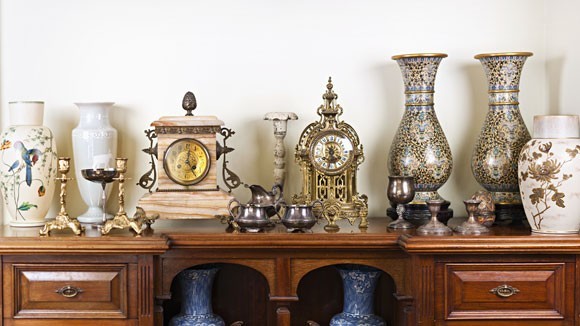It’s a mournful time dealing with the death of a parent. Whether it be expected or sudden, this hole in your life is one that every son or daughter can expect to walk through at some point in their life. Many emotions rule the conversation about the end of life, but one that is rarely discussed is what to do with all your relative’s possessions when they pass?
Unfortunately, in today’s society, most of the furniture that our family once considered an antique heirloom is now viewed as an unfashionable eye-sore in a modern home. This creates an obvious disconnect upon the death of a parent as a family now scrambles to see what to do with all this family furniture. According to the National Association of Senior Move Managers, many times this furniture ends up being discarded and thrown out.
In addition to the pain of throwing away items that their parents were attached to, families also have to deal with the pressure of the time to make a decision. Thankfully, there are a lot of ways to alleviate that pressure. NextAvenue, a PBS publication outlines 8 great tips:
- Start mobilizing while your parents are around. “Every single person, if their parents are still alive, needs to go back and collect the stories of their stuff,” says Kylen. “That will help sell the stuff.” Or it might help you decide to hold onto it. One of Kylen’s clients inherited a set of beautiful gold-trimmed teacups, saucers and plates. Her mother had told her she’d received them as a gift from the DuPonts because she had nursed for the legendary wealthy family. Turns out, the plates were made for the DuPonts. The client decided to keep them due to the fantastic story.
- Give yourself plenty of time to find takers, if you can. “We tell people: The longer you have to sell something, the more money you’re going to make,” says Fultz. Of course, this could mean cluttering up your basement, attic or living room with tables, lamps and the like until you finally locate interested parties.
- Do an online search to see whether there’s a market for your parents’ art, furniture, china or crystal. If there is, see if an auction house might be interested in trying to sell things for you on consignment.
- Get the jewelry appraised. It’s possible that a necklace, ring or brooch has value and could be sold.
- Look for a nearby consignment shop that might take some items. Or, perhaps, a liquidation firm.
- See if someone locally could use what you inherited. “My dad had some tools that looked interesting. I live in Amish country and a farmer gave me $25 for them,” says Kylen. She also picked out five shelters and gave them a list of all the kitchen items she wound up with. “By the fifth one, everything was gone. That kind of thing makes your heart feel good,” Kylen says.
- Download the free Rightsizing and Relocation Guide from the National Association of Senior Move Managers. This helpful booklet is on the group’s site.
- But perhaps the best advice is: Prepare for disappointment. “For the first time in history of the world, two generations are downsizing simultaneously,” says Buysse, talking about the boomers’ parents (sometimes, the final downsizing) and the boomers themselves. “I have a 90-year-old parent who wants to give me stuff or, if she passes away, my siblings and I will have to clean up the house. And my siblings and I are 60 to 70 and we’re downsizing.”
Ultimately, having a plan in place for what to do with parent’s belongings upon their death can save even more heartache. This will allow a focus on healing rather than loose ends. Work with siblings or other family members to establish a plan of what to do with parent’s belongings ahead of time, keeping in mind the sentimental value of some items and the monetary value of others. While many children want to believe their parents would be disappointed they did not keep one of their possessions, it is also good to look at the thought that a parent would want their children to be cared for financially too, and some items may be worth something.
It’s an uncomfortable conversation when talking about family heirlooms but is much better to be had in advance rather than scrambling after a family member’s death.
Do you have a plan in place for your family heirlooms? Let us know and get more tips at info@martinsonandbeason.com
